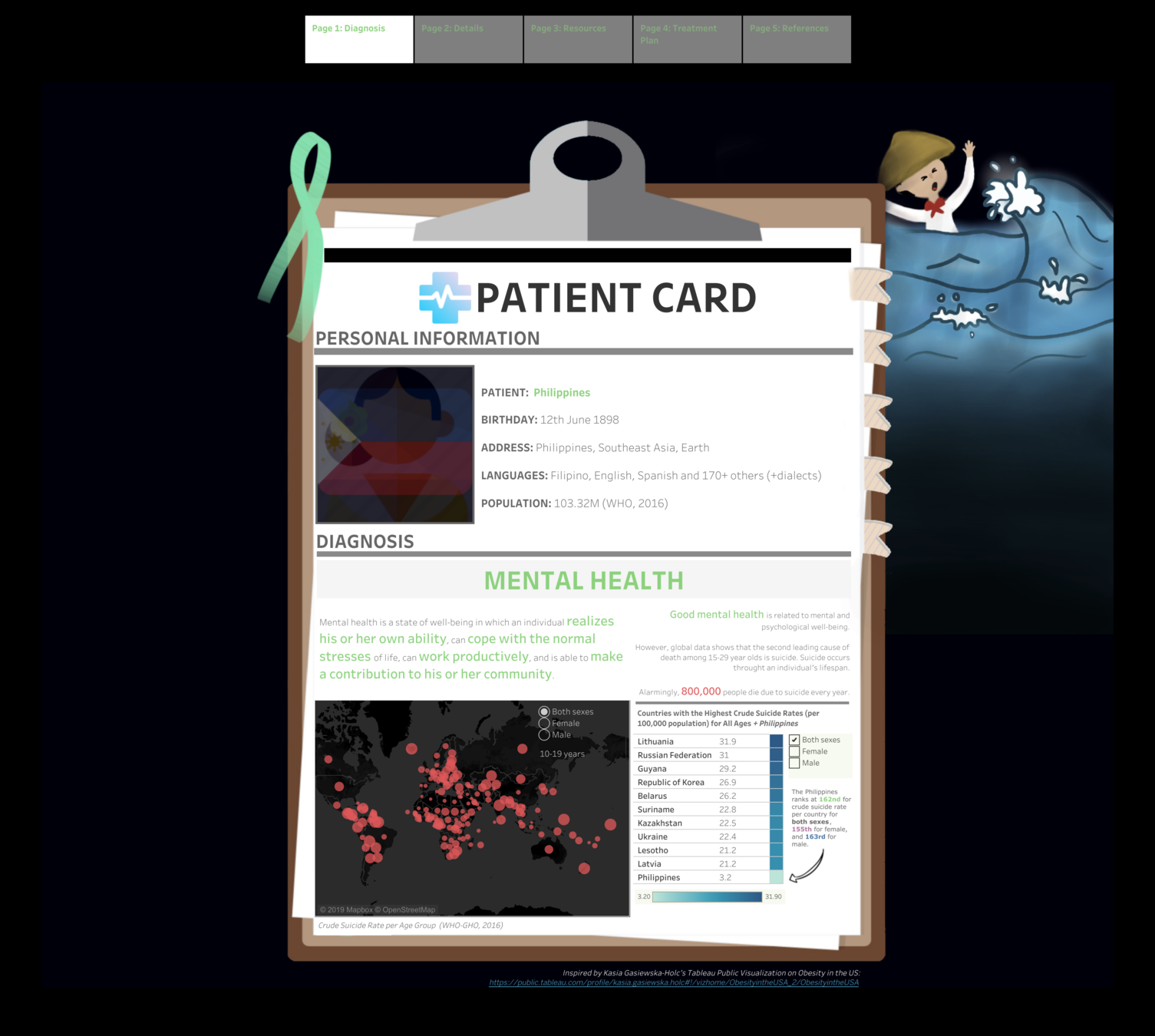Understanding Mental Health
Understanding Mental Health

Mental Health
“a state of well-being in which every individual realizes his or her own potential, can cope with the normal stresses of life, can work productively and fruitfully, and is able to make a contribution to her or his community”


-
Around 20% of the world's children and adolescents have mental disorders or problems.
-
Over 800,000 people die due to suicide every year and suicide is the second leading cause of death in 15-29-year-olds.
-
Stigma and discrimination against patients and families prevent people from seeking mental health care.
-
Around 20% of the world's children and adolescents have mental disorders or problems.
-
Over 800,000 people die due to suicide every year and suicide is the second leading cause of death in 15-29-year-olds.
-
Stigma and discrimination against patients and families prevent people from seeking mental health care.






Positive Emotions

Danner, D., Snowdon D., and Friesen W., (2002). "Positive Emotions in Early Life and Longevity: Findings from the Nun Study" . University of Kentucky

Danner, D., Snowdon D., and Friesen W., (2002). "Positive Emotions in Early Life and Longevity: Findings from the Nun Study" . University of Kentucky


Danner, D., Snowdon D., and Friesen W., (2002). "Positive Emotions in Early Life and Longevity: Findings from the Nun Study" . University of Kentucky


How do we achieve happiness and cultivate positive emotions in this Pandemic?

70,000
98%
80%
It is normal to feel sad, stressed, confused, scared or angry during a crisis.
Talking to people you trust can help. Contact your friends and family.
If you must stay at home, maintain a healthy lifestyle - including proper diet, sleep, exercise and social contacts with loved ones at home and by email and phone with other family and friends.

Don’t use smoking, alcohol or other drugs to deal with your emotions.
If you feel overwhelmed, talk to a health worker or counsellor. Have a plan, where to go to and how to seek help for physical and mental health needs if required.
Get the facts. Gather information that will help you accurately determine your risk so that you can take reasonable precautions. Find a credible source you can trust such as WHO website or, a local or state public health agency.

Limit worry and agitation by lessening the time you and your family spend watching or listening to media coverage that you perceive as upsetting.
Draw on skills you have used in the past that have helped you to manage previous life’s adversities and use those skills to help you manage your emotions during the challenging time of this outbreak.

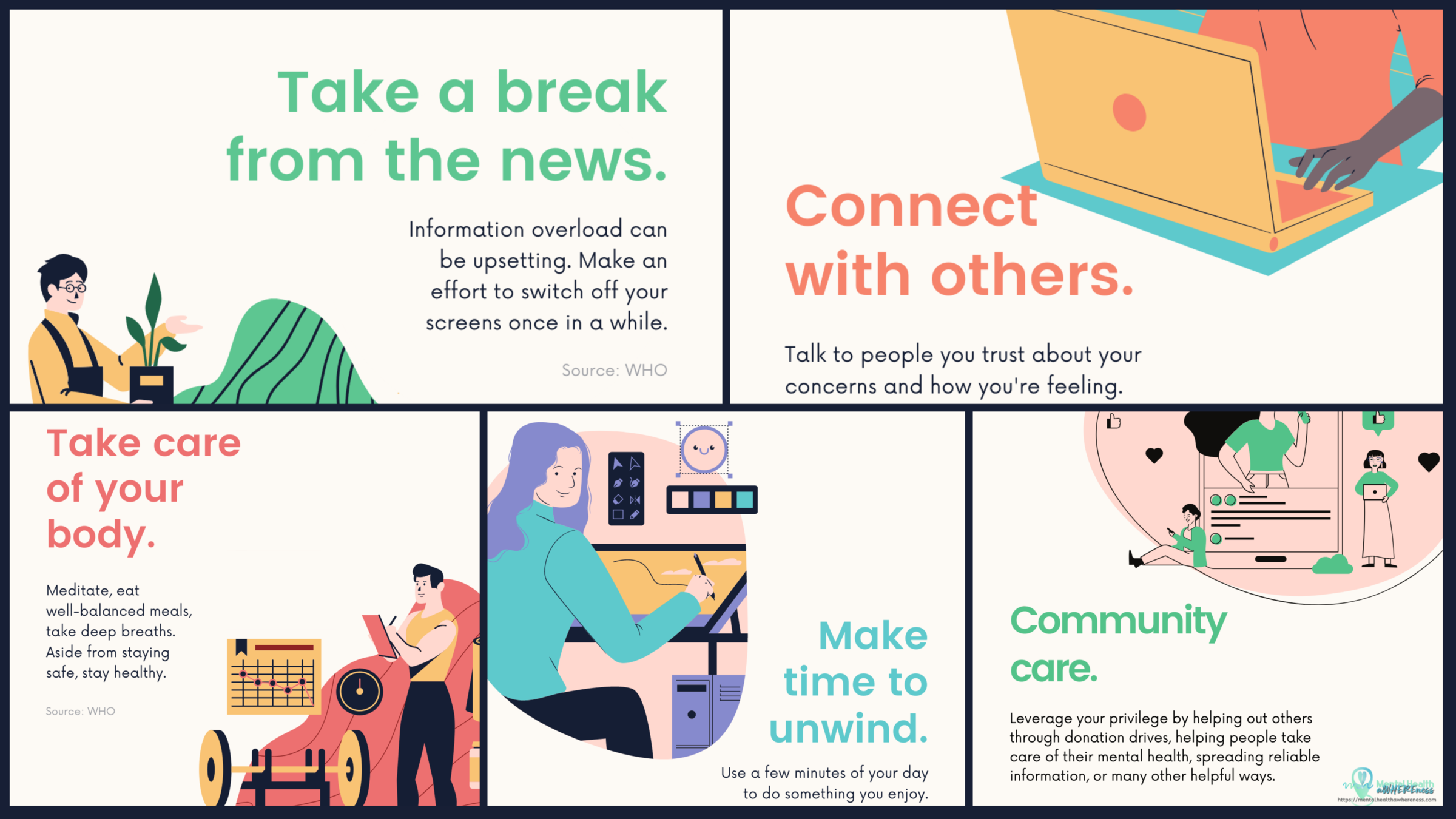

How do we help a loved one who has mental health needs especially if they are staying at home with you?

Encourage active listening and an understanding attitude with the children.
Children usually feel relieved if they are able to express and communicate their disturbing feelings in a safe and supportive environment.

MESSAGES & ACTIVITIES FOR HELPING CHILDREN DEAL WITH STRESS DURING THE COVID-19 OUTBREAK
Encourage an increased sensitive and caring environment around the child.
Manage your own emotions.
Make the children feel loved more often.

MESSAGES & ACTIVITIES FOR HELPING CHILDREN DEAL WITH STRESS DURING THE COVID-19 OUTBREAK
Keep regular routines and schedules as much as possible or help create new ones in a new environment.
Provide information about what has happened or could happen in a reassuring, honest and age-appropriate way.

MESSAGES & ACTIVITIES FOR HELPING CHILDREN DEAL WITH STRESS DURING THE COVID-19 OUTBREAK
Support adults/caregivers with activities for children during home isolation/quarantine. Activities should explain the virus but also keep children active when they are not at school, for example:
- Hand washing games with rhymes
- Imaginary stories about the virus exploring the body
- Make cleaning and disinfecting the house into a fun game
- Draw pictures of virus/microbes’ that to be coloured by children
- Explain person protective equipment (PPE) to children so that they are not scared

MESSAGES & ACTIVITIES FOR HELPING CHILDREN DEAL WITH STRESS DURING THE COVID-19 OUTBREAK
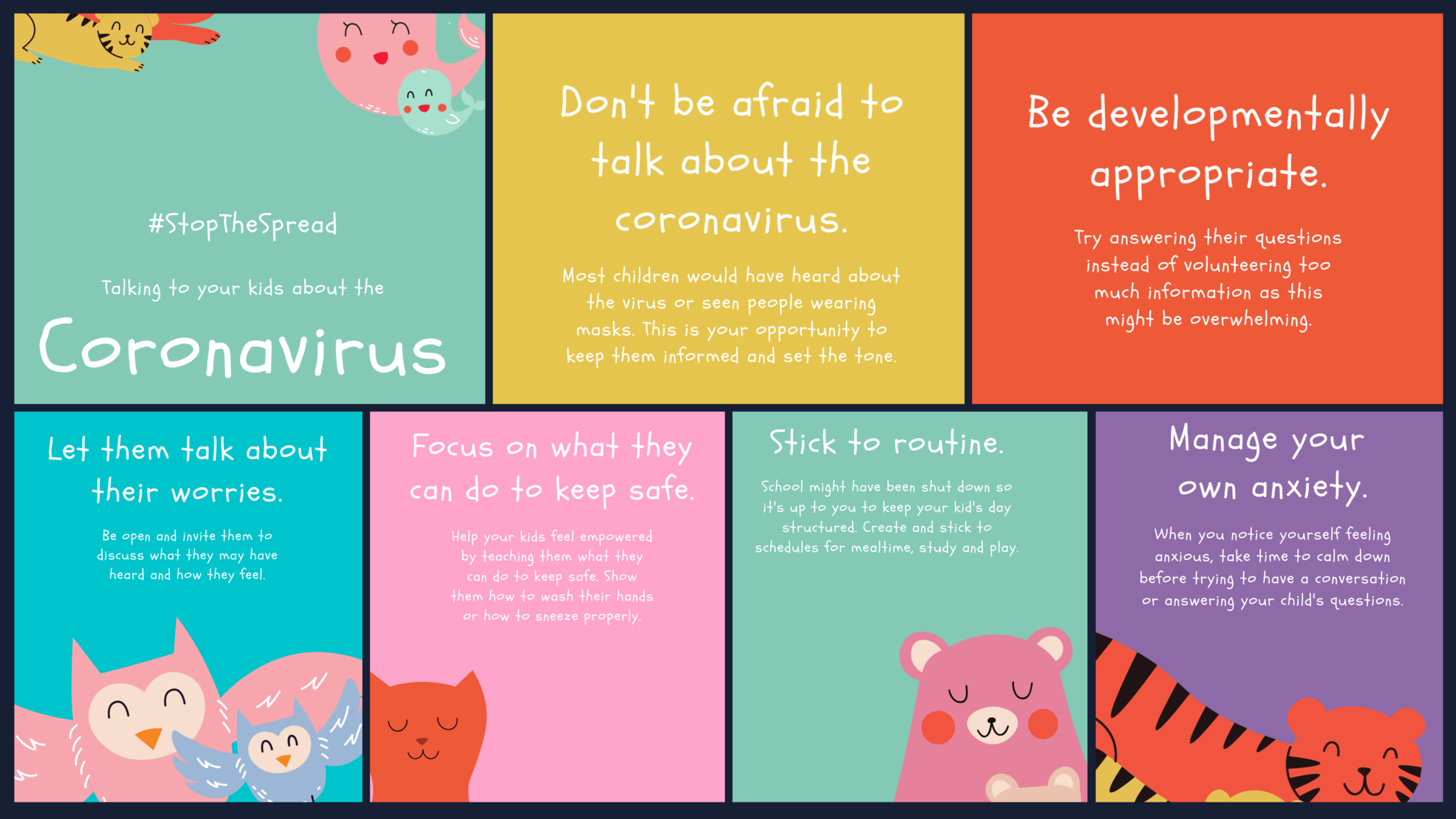

HELPING OLDER ADULTS COPE WITH STRESS DURING THE COVID-19 OUTBREAK
Older people may have limited access to messaging apps, like Viber, WeChat, Telegram, Facebook Messenger, etc.
-
Provide older adults with accurate accessible information and facts about the COVID-19 outbreak, the progression, treatment, and effective strategies to prevent an infection.
-
Information needs to be easily accessible (i.e. clear, simple language, large font) and come from multiple trusted (media) sources (public media, social media and trustworthy health care providers) to prevent irrational behavior such as stocking of non-effective medical herbs.
-
Encourage family or friends to call their older relatives regularly and teach older people how to use video(chat).

HELPING OLDER ADULTS COPE WITH STRESS DURING THE COVID-19 OUTBREAK
Older people might not be familiar with the use of protective devices or prevention methods or refuse to use them.
- Instructions on how to use protective devices need to be communicated in a clear, concise, respectful, and patient way.

HELPING OLDER ADULTS COPE WITH STRESS DURING THE COVID-19 OUTBREAK
Older people may not know how to use online services such as online shopping for daily supplies, consultation/helplines, or health care.
- Provide older people with details and how to get practical help if needed, like calling a Taxi, or dropping off supplies.
- Availability of goods and services such as preventive materials (e.g., facial masks, disinfectants), sufficient grocery supplies, and emergency transportation access can reduce anxiety in everyday life.

HELPING OLDER ADULTS COPE WITH STRESS DURING THE COVID-19 OUTBREAK
Teach older people simple physical exercises to perform at their home/in quarantine to maintain mobility and reduce boredom.

How to support someone with a mental health problem
Know the signs.
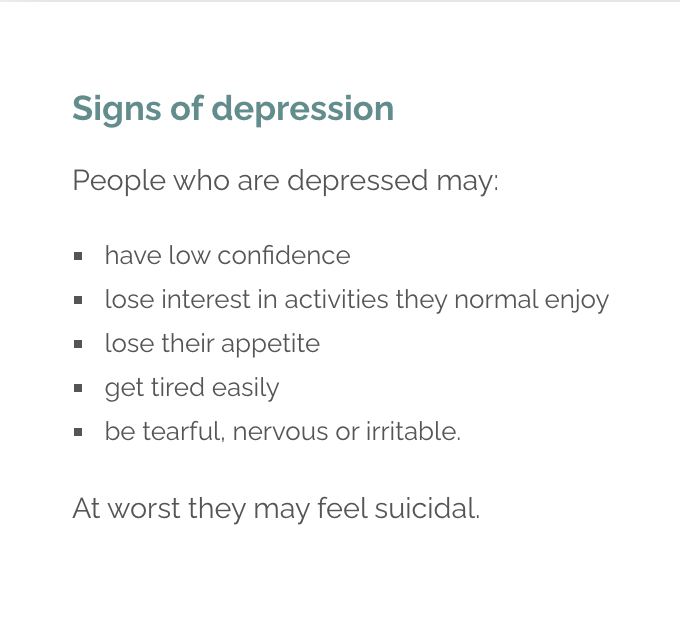
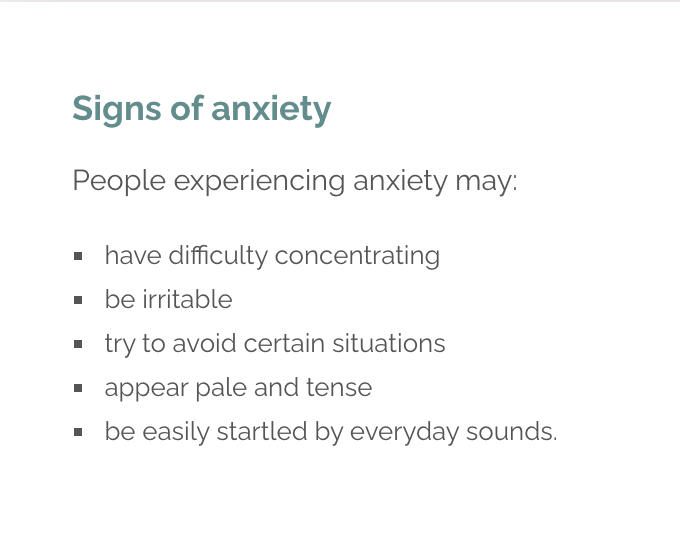
https://www.mentalhealth.org.uk/publications/supporting-someone-mental-health-problem
How to support someone with a mental health problem
Talk to them.








Mental Health AWHEREness aims to promote mental health awareness through information, education, communication, and mapping of available mental health services and their corresponding important information that would help and encourage people to seek mental healthcare without telling others until they are ready to do so; and to tell decision-makers where more mental health services are needed.
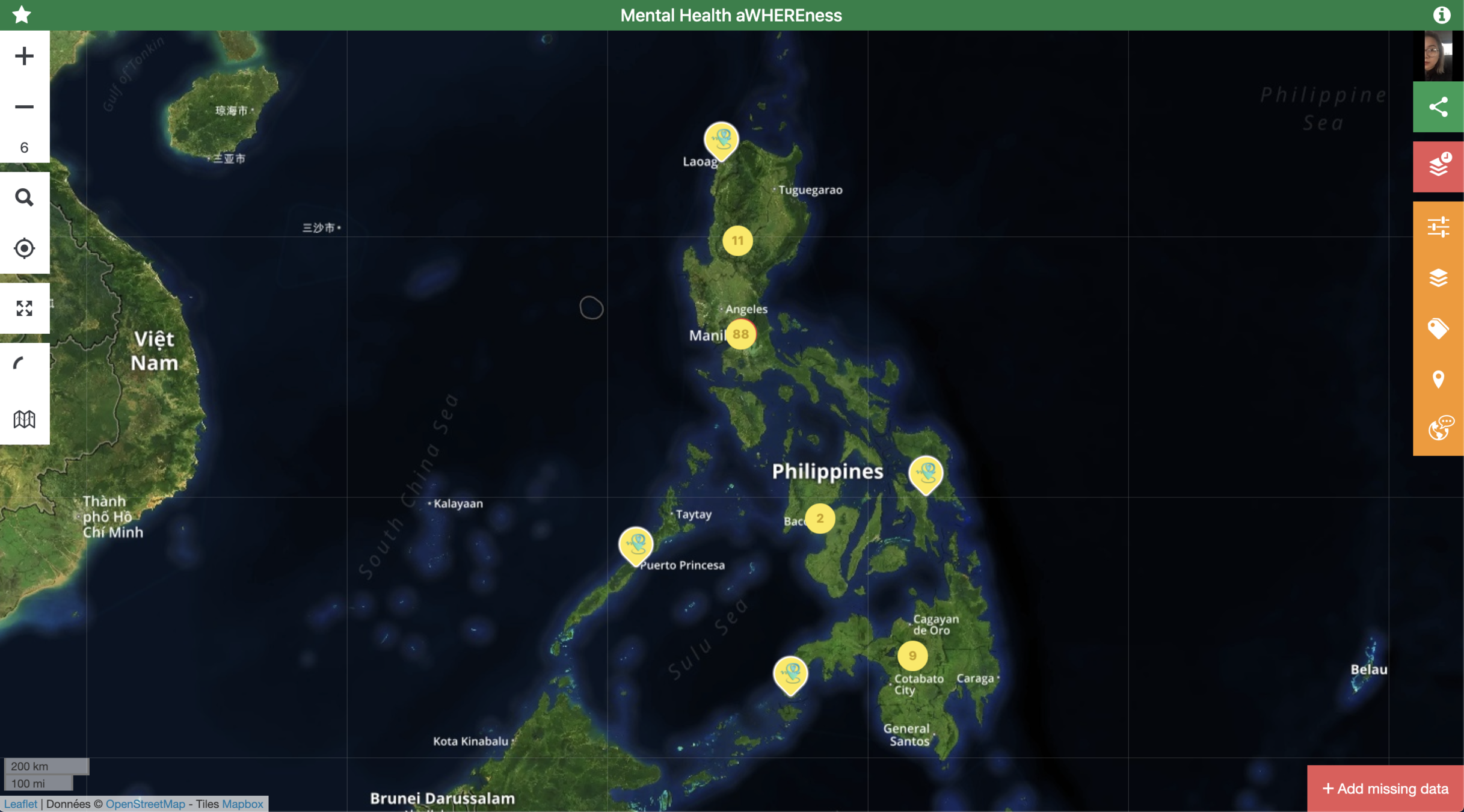
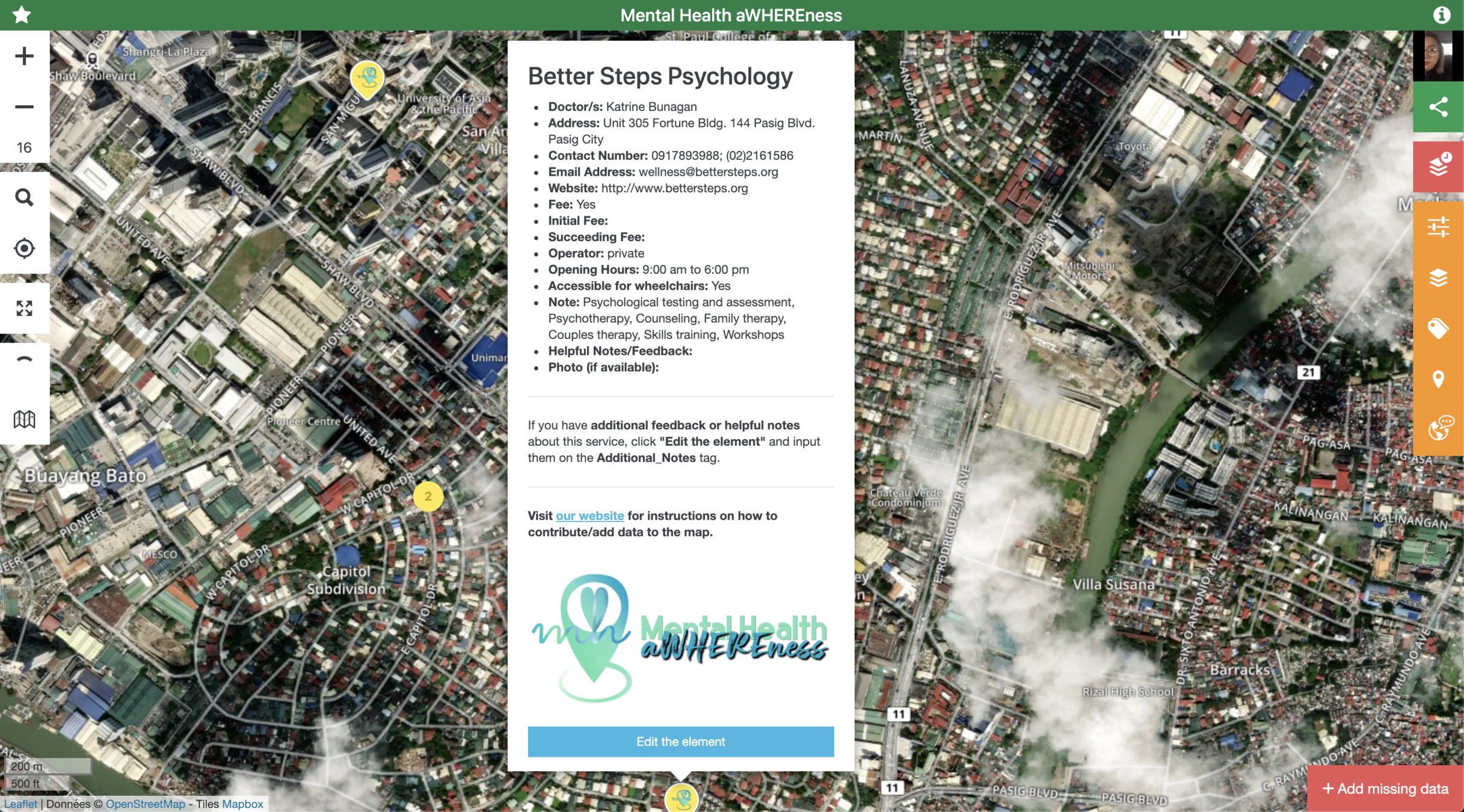
Understanding Mental Health
By Andi
Understanding Mental Health
- 550

